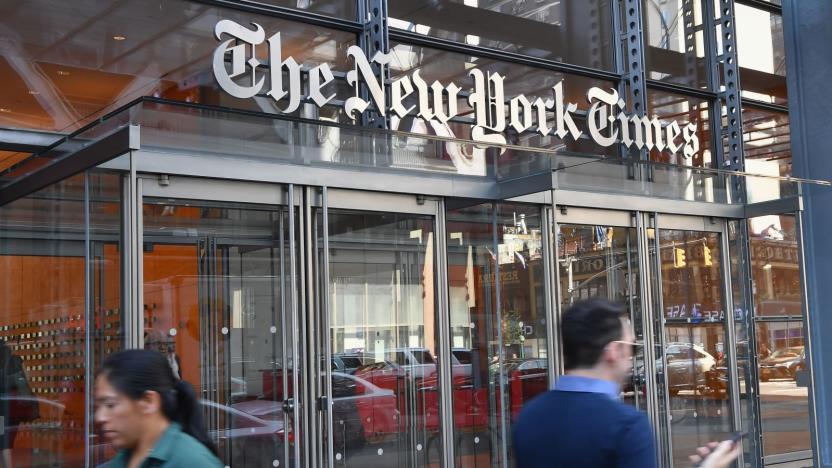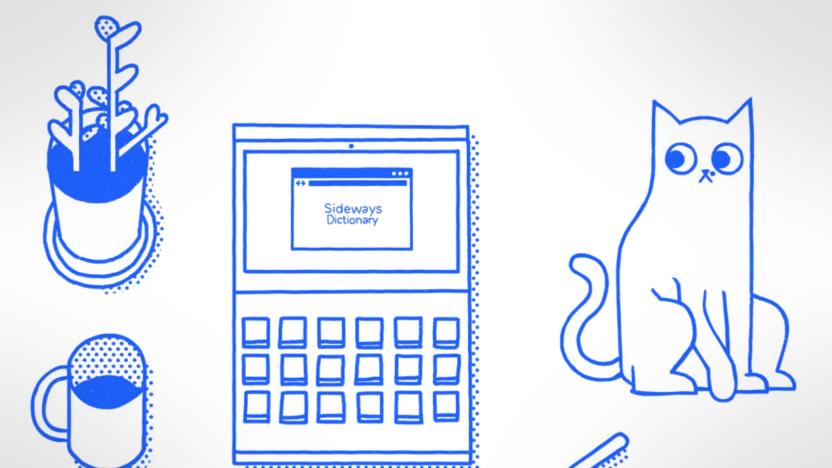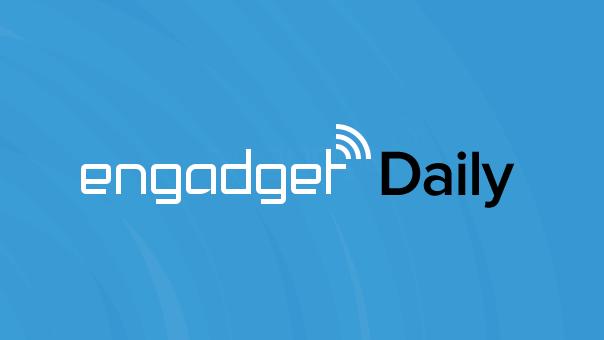WashingtonPost
Latest

Jeff Bezos accuses the National Enquirer of 'extortion and blackmail'
Nearly a month after the National Enquirer published a story about Amazon CEO and Washington Post owner Jeff Bezos' relationship with TV host Lauren Sanchez, Bezos has accused the outlet, its owner AMI and leader David Pecker of blackmail. "Rather than capitulate to extortion and blackmail," he wrote in a blog post on Medium, the executive published emails they sent proposing a "completely confidential" agreement. In exchange for a promise to not publish embarrassing photos obtained from his text messages, AMI's general counsel Jon Fine asked for Bezos and his lawyer for a statement "affirming that they have no knowledge or basis for suggesting that AM's coverage was politically motivated or influenced by political forces." As far as why the outlet would go to such lengths, with threats to release "below the belt selfie," among other images, Bezos cited his lawyer's investigation into how National Enquirer obtained the texts, as well as Pecker's reported actions on behalf of President Donald Trump and on behalf of the Saudi Government.

Apple seeks major newspaper allies for its subscription bundle
While rumors indicate Apple has bigger plans for its subscription bundle than just news, it has to start somewhere. In order to get that rolling, Recode reports it has opened discussions with the New York Times, Wall Street Journal and Washington Post about signing on with its recently-purchased "Netflix of magazines" app, Texture. All three have business models offering subscriptions to their news as premium pay content so it's obvious why Apple would want to include them, but less clear about whether they're inclined to join. According to Recode, Texture pays out to publishers based on how much its customers use a particular title, while the subscriptions each paper has bring money in regardless of whether a customer reads any or all of their content. Apple may have relationships with publishers via their apps and selling subscriptions in its Apple News outlet, but figuring out a way to get content aligned with a new business model could be the first hurdle to becoming an even bigger player in all forms of media.

YouTube still has an ad problem
YouTube's problem with automated ads appearing on extremist channels isn't getting any better. A recent CNN investigation revealed that companies including Adidas, Amazon, Hershey, Netflix and Under Armour -- and even the US government -- had their ads placed on unsavory channels.

'Sideways Dictionary' simplifies tech jargon for the masses
If you ever get confused about tech jargon (or want to clear up said confusion), a new tool from Google's Jigsaw incubator and the Washington Post may help. The "Sideways Dictionary" uses analogies and metaphors to help regular, non-techy people understand terms like "zero-day," "metadata," "net neutrality" and other jargon. Users will be able to access analogies online like a regular dictionary or find them in the Post, where they'll accompany articles that contain "technobabble."

Fact-check Trump's next tweetstorm as it happens
President-elect Donald Trump is an active Twitter user and has over 17.4 million followers. Those are facts. The contents of his tweets usually aren't. Or they aren't whole truths. As a way of fact checking our nation's next leader's online musings, The Washington Post created a Chrome extension that does just that. Called "RealDonaldContext," it takes his 140-character thoughts and, as the name suggests, gives context to what he's saying.

Washington Post open-sources its 'Trump Revealed' biography
Last week, after the Washington Post published its new Trump Revealed biography, the Republican Nominee was quick to give the book a harsh, "Don't buy, boring!" review. While Trump may believe the reporting in the book is inaccurate, the Post decided to respond to the allegations with a blast of sunshine. On Tuesday, the paper published a huge chunk of the notes, documents and transcripts that went into the book, effectively open-sourcing the work so other journalists could build on it.

BuzzFeed and Washington Post turn to robots for RNC coverage
Both the Washington Post and Buzzfeed have sent robots to cover the Republican National Convention in Cleveland. Call it forward thinking, call it a gimmick, inventive, desperate... doesn't matter. But it's happening, and both outlets couldn't be prouder of their efforts to modify their news gathering process and bring additional interactivity to their reporting.

Apple VP says FBI's order makes everyone less secure
To support their legal battle in Congress over San Bernardino shooter Syed Rizwan Farook's iPhone, Apple and the FBI are also waging a war of public opinion. So far, the FBI is winning, with over half the US population, 51 percent, saying that Apple should unlock the device, and only 38 percent saying it shouldn't. Last month, FBI director James Comey penned an editorial to convince the public that Apple must help the agency, and now, Apple VP Craig Federighi has fired back in the Washington Post. In an op-ed piece, he argues that the FBI is endangering everyone's data by "turn[ing] back the clock to a less-secure time."

Comcast's gigabit internet makes its way to Atlanta
The slow march toward blazing fast internet is upon us, and Comcast is bringing its DOCSIS 3.1 gigabit service to a few more cities. Soon the fine people of Atlanta and Nashville will be able to (likely) pay through the nose for the ultra-speedy connectivity, with it opening up to those in Chicago, Detroit and Miami in the back half of the year. It's worth noting that good number of those are cities where the company has bandwidth cap tests in place.

Jeff Bezos' fourth tweet promises to #sendDonaldtospace
I've sent out plenty of Twitter replies to haters, but you'll have that after 38,000~ posts. Amazon CEO Jeff Bezos is relatively new to the service, and as such he has used one quarter of his tweets in responding to a Donald Trump tweetstorm. Trump claimed Bezos' ownership of The Washington Post is a scam, meant as a deduction to keep taxes down at his "no-profit" retail shop. Since Bezos, not Amazon, owns the Post and Amazon is (at least for the moment) profitable, this seems to be just another Trump statement that has little to no relationship with truth or facts of any kind. This evening Bezos fired back by bringing his third company Blue Origin into the fray, promising to reserve Donald Trump a seat. There's no word on if that seat comes with a return trip.

Amazon Prime subscriptions include six months of The Washington Post
Amazon Prime members can add one more perk to the list of items that the annual subscription gets them. The online retailer announced today that Prime now includes six months of unlimited access to The Washington Post Digital Edition which usually costs $10/month. After the trial period is up, members are still privy to a reduced rate of $4/month. It should come as no surprise that the retailer and the newspaper are in cahoots as Amazon CEO Jeff Bezos purchased the media outlet in 2013. What's more, Bezos & Co. have been keen on offering access to The Washington Post in the past, bundling it with Kindle Fire tablets. [Image credit: David Ryder/Getty Images]

UK spies collected journalists' email as part of a test
Want to know why many people don't like it when governments call for an end to encrypted communication? Here's why. A new round of Edward Snowden leaks at The Guardian has revealed that the intelligence agents at Britain's GCHQ collected email from major news outlets (including the BBC, Le Monde, the New York Times and the Washington Post) in 2008 while testing a system that stripped out data irrelevant to searches. While it's not clear that the agency singled out the press during the test, there's no indication that it got rid of the messages, either.

Engadget Daily: Galaxy Alpha and Xperia Z3 reviews, the new 'Smash Bros.' and more!
Interested in upgrading to the Galaxy Alpha or Xperia Z3? You've come to the right place. Today, we take both handsets for a spin, journey through the historical roots of Assassin's Creed: Unity, play a whole bunch of the new Smash Bros. for 3DS, and more. Read on for all our news highlights from the last 24 hours.

Amazon's Kindle Fire will come with free news from the Washington Post
Jeff Bezos runs Amazon and owns the Washington Post -- is it any surprise that those two entities might start getting a little cozy? According to a new report from BusinessWeek, the a group of folks at the Post are working on a sort of curated Washington Post app that'll be preloaded on the forthcoming Kindle Fire HD tablet. The kicker? It's expected to be totally free to those Fire owners, and the app will eventually roll out to other Kindles, as well as iPads and Android tablets... though owners of the latter will have to shell out a subscription fee. This isn't the first time that we've seen Kindles and traditional reporting collide -- let's not forget that Amazon once made a ginormous version of the Kindle meant in part to make newspapers more palatable on an e-ink screen -- but it's a big, smart step for a media company that has its metaphorical eyes set on a national audience.

Snowden leaks and NSA reporting win Pulitzer Prizes
Both The Guardian and The Washington Post were announced as Pulitzer Prize winners today in the public service category. The prizes were awarded for The Guardian's Edward Snowden work, which revealed dozens of details about the United States government spying on citizens the world over, and for Washington Post's ongoing National Security Agency coverage, which uncovered Prism and myriad other surveillance overreaches. Of the 14 awards given, only two were given for reporting on NSA surveillance and Edward Snowden's leaks.

Daily Roundup: Moto X review, Laptop buyer's guide, Samsung's Galaxy event, and more!
You might say the day is never really done in consumer technology news. Your workday, however, hopefully draws to a close at some point. This is the Daily Roundup on Engadget, a quick peek back at the top headlines for the past 24 hours -- all handpicked by the editors here at the site. Click on through the break, and enjoy.

Jeff Bezos buys 'The Washington Post' for $250 million in cash
Some big (and surprising) news in the media industry today: The Washington Post has just confirmed that it and its affiliated publications have been acquired by Amazon CEO Jeff Bezos for $250 million in cash. The paper notes that Amazon itself "will have no role in the purchase," and that Bezos "will buy the news organization and become its sole owner when the sale is completed, probably within 60 days." It also goes on to explain that the existing Washington Post Company, which owns a number of other businesses (including Slate), "will change to a new, still-undecided name and continue as a publicly traded company without The Post thereafter." In an interview with the paper, the Post Co.'s chief executive, Donald Graham, says that "The Post could have survived under the company's ownership and been profitable for the foreseeable future. But we wanted to do more than survive," adding, "I'm not saying this guarantees success but it gives us a much greater chance of success." In a letter to Post employees, Bezos, who was apparently one of several suitors considered by the company, says that he "won't be leading The Washington Post day-to-day," but that "there will of course be change at The Post over the coming years," and that "we will need to invent, which means we will need to experiment."

Siri VC Morgenthaler weighs in on iPhone 4S bandwidth badmouthing (Updated)
Back in early January, wireless optimization firm Arieso released a report on the bandwidth usage profiles of various smartphones and other devices. It noted a surge in download and upload usage for the iPhone 4S, moving the new phone ahead of the iPhone 4 and various Android devices to take over the top spot for smartphone bandwidth consumption. At the time, coverage by Reuters and Bloomberg (reiterated by several sites, sorry to say, including TUAW) put the onus for this bump in the pipe on one of the marquee features of the 4S: the voice-controlled digital assistant, Siri. [Arieso's CTO Michael Flanagan spoke about Siri's role in bandwidth usage in a video interview with Bloomberg back when the report was released, and while he doesn't exactly pin all the blame on Siri -- he says the usage is due to increased utilization of 'cloud services' -- Siri does come in for some of the blame. It's not nearly as emphatic as subsequent reports would have it. Video embedded below. –Ed.] Fast forward a few weeks: an op-ed from Paul Farhi in the Washington Post dives back into the Arieso report, recycling the charge that Siri is singlehandedly responsible for pumping up the load on America's cellular networks and degrading data service for everyone. (Farhi stopped short of blaming her for fluoride in the water and the rise of reality television.) This time, however, some consideration of the facts in evidence led us to question his (and our) original conclusions; we know that the math around Siri's data usage just doesn't add up to a consequential amount. We also reached out to Arieso for a copy of the full report, which the company happily and promptly provided. Now there's another voice weighing in, and it belongs to someone who's in a position to know what's what: former Siri board member Gary Morgenthaler. He wrote a guest post for Forbes's web site that thoroughly debunks the notion of Siri as a bandwidth bandit. Siri actually uses only small bites of wireless data, as tested by Ars Technica and backed up by Morgenthaler's inside info. What does Morgenthaler suspect might be at play in the 4S bandwidth numbers? He's careful to couch it as speculation rather than assert it as fact, but the addition of iCloud to the iOS service mix is a likely culprit (especially since buyers of new phones are more likely to set up Apple's cloud service than users of older models, who may be slower to update to iOS 5). Other possibilities include iTunes Match, Photo Stream, or simply the wider chunk of image data captured by the iPhone 4S's improved camera. As Mel noted earlier, the 4S also supports faster 3G downloads than the earlier models. [Photo Stream is WiFi-only, as pointed out by David Barnard.] There's only one issue I saw in Morgenthaler's response, but it's an important one. Morgenthaler suggests that Arieso committed a logical error in citing Siri as the cause of the 4S results: Arieso presents no data to support their claim that Siri causes the increase in iPhone 4S data usage. Most likely, Arieso committed a logical fallacy which, in grammar school, was called "post hoc, ergo propter hoc" - that is, "after the fact, therefore, because of the fact." In other words, Siri is new and associated with the iPhone 4S; therefore, it must be the cause of this increased traffic. It's an appealing argument, but it doesn't hold water. That's also an appealing argument, but he may be pinning the propter hoc on the wrong donkey. Even a cursory review of the Arieso report is sufficient to discover that it does not mention Siri at all, and it makes no such claim that the voice assistant is responsible for the bandwidth hunger -- at least, not in the body of the report. When it comes to the cause of the iPhone 4S's download desire, in fact, the report makes it very clear that it's too soon to draw any specific conclusions (emphasis mine): The iPhone 4S showed an increase of 176% in downlink data volumes over the iPhone 3G. Since the downlink-to-uplink data volume ratio was almost 7-to-1 on average for the devices under study, this downlink increase of 176% corresponds to a larger total volume of data than a 220% uplink increase (discussed in the last section). As noted earlier regarding the increases in total numbers of data calls, it remains a topic for further study to characterise the root cause of this downlink data volume increase. Arieso's research never said Siri was completely to blame, at least not in so many words; it's not clear whether a company representative said something to Reuters to encourage this conclusion in CTO Michael Flanagan's interviews he does say that Siri is a potential part of the issue, but that conclusion is clearly not backed up by the report itself. Did the firm make an effort to correct the record, or was there a calculation that the Siri-related media attention would be more valuable than getting the accurate information out? We don't know, but we've reached out to Arieso's PR folk for comment. It begins to look less like an error of logic and more like a calculus of publicity. Update: Shortly after this post was published, I did speak with Flanagan about the report and the surrounding controversy. While he acknowledges that some of the media coverage of the bandwidth report may have weighed overmuch on Siri, he disavowed any conclusions not present in the original report (despite the fact that the report was only available on request, and as such most interested parties would not have read it). As noted above, the report specifically does not point any fingers regarding the cause of the bandwidth bump. Flanagan did allow that perhaps Arieso will be a bit more assertive about correcting unfounded assumptions the next time the company issues a bandwidth usage report. The Next Web also picked up a key tidbit from the research: the iPhone 4 utilization numbers were from 2010 (rather than comparing the 4 and the 4S during the same time period), meaning that the overall landscape may have shifted during the intervening months. Meanwhile, we're left with the unavoidable conclusion: The Washington Post and Paul Farhi picked a fight with Siri for something she does not do, picking up the "Siri is a data guzzler" concept from the original coverage -- but not from the actual data. Hanging the 4S bandwidth bulge on an innocent intelligent assistant may be great for headlines, but it looks to be wrong on the facts.

Siri probably isn't the bandwidth hog the WaPo warned you about
Update: Former Siri director responds to the Washington Post story. Reuters was the original source of the error around Siri bandwidth usage. "How Siri is ruining your cellphone service." That's the searing headline from the Washington Post in an article by Paul Farhi. Farhi claims that "Siri's dirty little secret is that she's a bandwidth guzzler, the digital equivalent of a 10-miles-per-gallon Hummer H1." Where's he coming up with this? Apparently, the "Siri eats bandwidth" claim is based on a study by Arieso that reports that iPhone 4S owners consume twice as much cellular data as iPhone 4 users and 3 times as much as iPhone 3G users. Recent Android phones are also chewing up twice as much data as the iPhone 3G, while 3G and 4G mobile hotspots are by far the biggest download hogs (26x the baseline). At least in the press release summary of the study, however, there's no mention of Siri at all; just the increased usage for the 4S, which just happens to support a faster download standard on AT&T's network. Our sister site Engadget helped put that study in perspective by pointing out that Arieso has a vested interest in the results of the research. We've asked for a full copy of the report to see what, if any, linkage there is between Siri and data volume. [Ars Technica did a round of testing when the iPhone 4S came out, and the results showed that an average Siri user might add just 10MB of data consumption per month due to voice queries. Considering that the high-end AT&T data plan provides two gigabytes of traffic, that 10MB would represent only 0.5% of the full allocation, or 1% of a half-used allowance -- unlikely in the extreme to result in a doubling of data usage. –Ed.] If we take the study at face value, though, why more data on the 4S? The likely answer hasn't much to do with Siri and a lot more to do with the profile of the iPhone 4S buyer. The people who buy the latest phone are also the power users who take the most advantage of their devices. We've seen that happen before with new technology, and once people stop amazing themselves and their friends, the consumption of bandwidth drops off. I haven't seen any convincing data that says the iPhone 4S inherently uses more data than an iPhone 4, and iOS 5 iCloud features, also available on the iPhone 4 and 3GS, probably play a role in increased bandwidth use. As for Siri, most of the heavy lifting goes on at the Apple servers, where your query is translated into data and then sent back to your phone in a quick burst. Streaming radio, Netflix and a host of other apps can use way more bandwidth, and they are utilizing the network for minutes or hours at a time, not seconds. Of course Siri is on every iPhone 4S, so it is getting used more than some 3rd-party apps, but it's hard to believe that the average user doing perhaps 2-3 queries a day is destroying our cellular infrastructure. GigaOm this morning also poured cold water on the Post story, and there will probably be more to come. One thing is for sure. Smartphones, and the iPhone in particular, are using more data than the dumb phones of old. Compare that to the internet connections in our homes, where Netflix has been identified as the biggest user of bandwidth in the U.S. It's up the internet providers, both wired and wireless, to keep growing their networks so they can continue to charge those premium rates; it's also up to Washington regulators and cellular carriers to make efficient use of bandwidth and future spectrum technologies. Readers, are you heavy Siri users, and are you destroying our cellular networks?

Mobile Miscellany: week of October 3, 2011
This week was packed with news on the mobile front, so it was easy to miss a few stories here and there. Here's some of the other stuff that happened in the wide world of wireless for the week of October 3, 2011: The Pantech Hotshot featurephone (above left) launched on Verizon this week. It's a full 3.2-inch touchscreen with a 3.2 megapixel camera and video capture. It's offered for $100 with a two-year contract. [PhoneScoop] AT&T launched the Pantech Link II (above right) this week, a follow-up to the popular Quick Messaging Device. It features BREW mobile 1.0.2 and is available for $10 with a two-year commitment. Cincinnati Bell launched the HTC Sensation 4G for $250 with a two-year contract and after a $50 mail-in rebate. The HTC Amaze 4G is heading north. Canadian carrier Telus has given the device its own piece of real estate on its site, having it listed as "coming soon." [AndroidCentral] According to benchmark tests, the Sony Ericsson Nozumi actually has a 1.5GHz dual-core Qualcomm CPU and uses Android 2.3.5. [LandofDroid] Open Range Communications, a WiMAX provider in the Denver area, is laying off more than a hundred employees, shutting down its WiMAX service to new customers and the CEO resigned. [PhoneScoop] Prefer the Washington Post over the New York Times? The former has its own Android app now available in the Market for free. [AndroidCentral] The Nokia N9 is now officially for sale in Australia, on Telstra. Vodafone and Optus haven't put the device on sale yet, though both companies have announced intentions to do so at some point. [ComputerWorld]











